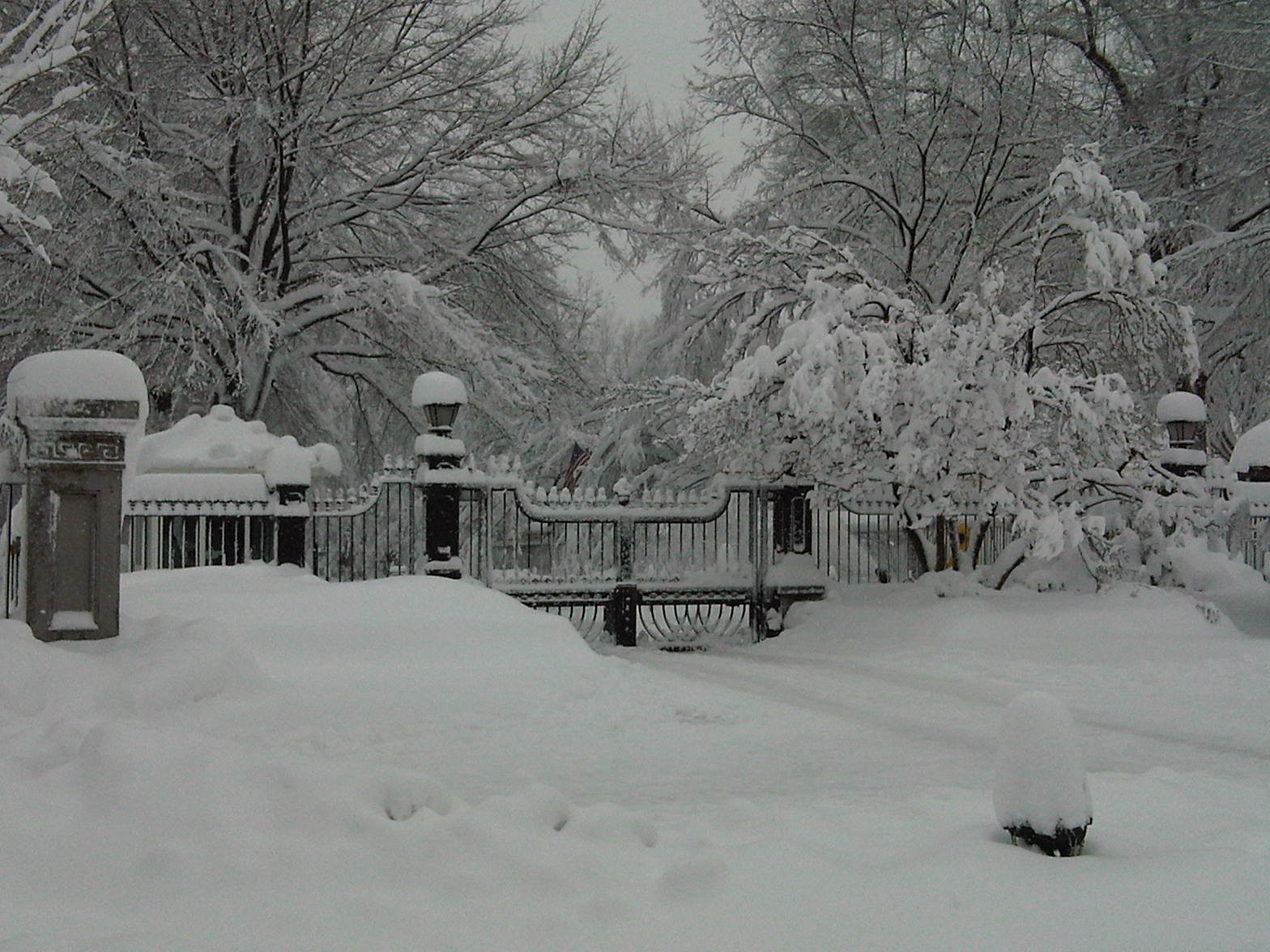April 28, 2010 at 10:01 am
· Filed under Uncategorized
From the Government Executive newsletter:
As soon as next week, the White House will release a hiring reform memo that will promote using résumés in place of knowledge, skills and abilities essays, a senior human capital official told Government Executive.
The official, who spoke on background in advance of the memo’s release, said Office of Management and Budget and Office of Personnel Management officials almost have completed the document and are prepared to pass it along to the White House for clearance.
Here’s the full story.
Permalink
April 27, 2010 at 11:37 am
· Filed under Uncategorized
We’ve posted quite a bit in recent weeks about legislative efforts on the state level to curtail the scope of operation of law school clinical programs that engage in litigation that is sometimes politically unpopular. The University of Maryland controversy got a lot of press coverage, but it also shined a light on similar debates elsewhere. For instance, several days ago, the New York Times ran a piece that touches on the Maryland controversy and zooms out more broadly to look at the proliferation of law school environmental clinic programs in recent decades, their relationships with the environmental movement, and the dust-ups that have occurred throughout the country as clinical programs have gotten involved in litigation against business interests. The Times’s editorial board got involved, too, coming down on the side of clinical programs (noting yet another, recent controversy in Louisiana), arguing that business interests prompting legislative scrutiny of clinic activities interfere “with law schools’ freedom to decide how to educate students” and that “extracting information from clinics about the people they serve … also threatens the clinics’ relationships with their clients.”
As regards that Louisiana controversy, the Shreveport Times’s editorial board weighed in today, noting skepticism about the unintended consequences of a proposed bill that would curtail law school clinic programs’ ability to sue government entities: “A move to hamstring university law clinics that represent poor citizens in environmental cases could also affect free legal representation related to domestic violence and juvenile justice.”
Permalink
March 26, 2010 at 10:45 am
· Filed under Uncategorized
The Blog of the Legal Times reports:
The D.C. Court of Appeals has approved a change to the D.C. Rules of Professional Conduct that requires all members of the D.C. Bar who receive IOLTA-eligible funds to participate in the IOLTA program. Before the court’s March 22 order, lawyers could opt out of the program.
…
Washington’s IOLTA program, like others across the country, takes the interest collected on client funds that are either small in amount or held for a short period of time and allows the D.C. Bar Foundation to distribute it to legal service providers in Washington. Katia Garrett, the executive director of the D.C. Bar Foundation, said that to date, 41 other states require participation in their IOLTA programs, and 31 require banks that participate in the IOLTA program to provide comparable rates to non-IOLTA accounts.
Those who are unfamiliar with IOLTA programs may not know that they are critical funding sources for civil legal services providers throughout the country. IOLTA programs are administered on a state-by-state basis. There’s much to learn on the IOLTA.org website. Some of the info on there is a little bit dated, but it provides the basics:
Interest on Lawyers Trust Accounts is a unique and innovative way to increase access to justice for individuals and families living in poverty and to improve our justice system. Without taxing the public, and at no cost to lawyers or their clients, interest from lawyer trust accounts is pooled to provide civil legal aid to the poor and support improvements to the justice system.
A lawyer who receives funds that belong to a client must place those funds in a trust account separate from the lawyer’s own money. Client funds are deposited in an IOLTA account when the funds cannot otherwise earn enough income for the client to be more than the cost of securing that income. The client – and not the IOLTA program – receives the interest if the funds are large enough or will be held for a long enough period of time to generate net interest that is sufficient to allocate directly to the client.
…and some history…
IOLTA programs were first established in Australia and Canada in the late 1960s and early 1970s to generate funds for legal services to the poor. In the late 1970s, The Florida Bar and other organizations filed a petition to establish the first U.S. IOLTA program in Florida. After legislation permitted the establishment of interest-bearing checking accounts in the early 1980s and the Florida advocates obtained important tax rulings from the IRS, the Florida Bar Foundation launched the first IOLTA program in 1981. Shortly thereafter, California, Idaho and Maryland followed suit.
Today, all 50 states, the District of Columbia, and the U.S. Virgin Islands operate IOLTA programs. Thirty-six jurisdictions require lawyers to participate in IOLTA. Lawyers can opt out of participation in 14 others, and participation is voluntary in two others.
During the economic recession, IOLTA programs have been positively battered, straining the budgets of legal services programs in states throughout the U.S., including in Connecticut, New York, and Maryland.
Permalink
February 7, 2010 at 1:50 pm
· Filed under Uncategorized
Your author is from the Northeast, and tends to think that D.C. residents get a bit carried away with winter storm panic. But the blizzard that passed through Washington over the weekend was extraordinary, resulting in some beautiful downtown scenery and, at the same time, difficult circumstances for many due to downed tree branches and power outages. Here are some photos snapped by current and former (tip of cap to Jarrod) PSLawNet staffers:
A snowed-in White House gate:

Accumulation as measured by the print media:

A view from the street:

Spontaneous snowball fights to avoid cabin fever:

Permalink
January 12, 2010 at 2:43 pm
· Filed under News and Developments, The Legal Industry and Economy, Uncategorized
There has been a flurry of recent announcements about charitable foundation and government grants awarded to legal services providers:
- According to a press release, the “…New York Bar Foundation today awarded four New York City-based legal aid organizations more than $528,000 in grant money to fund tenant screening training and outreach programs in neighborhoods across New York City. The funds were distributed as part of a $1.2 million cy pres class action settlement fund…”
- A Legal Aid of North Carolina press release announced that the “Z. Smith Reynolds Foundation will continue its vital support for LANC by renewing a major grant of $450,000 for its Home Defense Project.
The Home Defense Project (HDP) fights to save homes and reduce foreclosures in North Carolina. In North Carolina, home foreclosures are expected to exceed 50,000 in 2010.”
- In Indiana, the Evansville Courier & Press has reported that “[t]he Indiana Supreme Court is providing $1.5 million to Legal Aid agencies in the state. The first installment, $750,000, already has been given to 11 agencies… The Indiana General Assembly appropriates funding for the Civil Legal Aid Fund, and the Indiana Supreme Court awards the grant money to qualified agencies across the state. In its news release announcing the funds, the Supreme Court said it’s ‘committed to ensuring that individuals involved in civil matters also have access to attorneys’.”
Permalink





